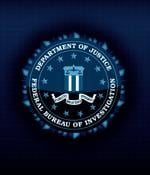Security News

The FBI has released a warning that scammers may be targeting individuals seeking to enroll in the Federal Student Aid program to steal their personal information, payment details, and money. Federal Student Aid is a debt relief program announced in August 2022 that opened for applications yesterday.

The Federal Bureau of Investigation warned today of foreign influence operations that might spread disinformation to affect the results of this year's midterm elections. The federal law enforcement agency warned that foreign actors are actively spreading election infrastructure disinformation to manipulate public opinion, discredit the electoral process, sow discord, and encourage a lack of trust in democratic processes and institutions.

The FBI and the US government's Cybersecurity and Infrastructure Security Agency claim any foreign interference in the 2022 US midterm elections is unlikely to disrupt or prevent voting, compromise ballot integrity, or manipulate votes at scale. The agencies also took the time to explain how US election systems are secured using "a variety of technological, physical, and procedural controls to mitigate the likelihood of malicious cyber activity" that could affect "Election infrastructure systems or data that would alter votes or otherwise disrupt or prevent voting."

The FBI and Cybersecurity and Infrastructure Security Agency claim any foreign interference in the 2022 US midterm elections is unlikely to disrupt or prevent voting, compromise ballot integrity or manipulate votes at scale. Despite popular narratives in some political circles that the 2020 election was insecure and fraudulent, there hasn't been any evidence to suggest that, the FBI and CISA said in the PSA. The agencies also took the time to explain how US election systems are secured using "a variety of technological, physical, and procedural controls to mitigate the likelihood of malicious cyber activity" that could affect "Election infrastructure systems or data that would alter votes or otherwise disrupt or prevent voting."

The Federal Bureau of Investigation and the Cybersecurity and Infrastructure Security Agency in a public service announcement says that cyber activity attempting to compromise election infrastructure is unlikely to cause a massive disruption or prevent voting. "As of the date of this report, the FBI and CISA have no reporting to suggest cyber activity has ever prevented a registered voter from casting a ballot, compromised the integrity of any ballots cast, or affected the accuracy of voter registration information," PSA from the FBI and CISA. "Any attempts tracked by FBI and CISA have remained localized and were blocked or successfully mitigated with minimal or no disruption to election processes," the two agencies says in the report.

U.S. cybersecurity and intelligence agencies on Tuesday disclosed that multiple nation-state hacking groups potentially targeted a "Defense Industrial Base Sector organization's enterprise network" as part of a cyber espionage campaign. " actors used an open-source toolkit called Impacket to gain their foothold within the environment and further compromise the network, and also used a custom data exfiltration tool, CovalentStealer, to steal the victim's sensitive data," the authorities said.

The Federal Bureau of Investigation warns of a rise in 'Pig Butchering' cryptocurrency scams used to steal ever-increasing amounts of crypto from unsuspecting investors. Pig Butchering is a relatively new social engineering scam where fraudsters contact people on social media and build trust by engaging in long-term communication, establishing the idea of a fabricated friendship or romantic partnership.

The FBI alleges it then followed the money as it moved from a cryptocurrency exchange to the NSA staffer's personal bank account. Jareh Sebastian Dalke, who was employed at the NSA as an information security systems designer from June 6 to July 1, allegedly began communicating with what he believed to be a foreign agent on July 29, according to a statement from the Department of Justice announcing his arrest in Denver on September 28.

Australian authorities have asked the United States Federal Bureau of Investigation to assist with investigations into the data breach at local telco Optus. Attorney general Mark Dreyfus yesterday revealed the FBI was asked to help identify the entities involved in the attack, which saw Optus leak data describing over ten million account holders.

The Federal Bureau of Investigation and CISA said that one of the Iranian threat groups behind the destructive attack on the Albanian government's network in July lurked inside its systems for roughly 14 months. "A FBI investigation indicates Iranian state cyber actors acquired initial access to the victim's network approximately 14 months before launching the destructive cyber attack, which included a ransomware-style file encryptor and disk wiping malware," the two agencies revealed in a joint advisory published today.